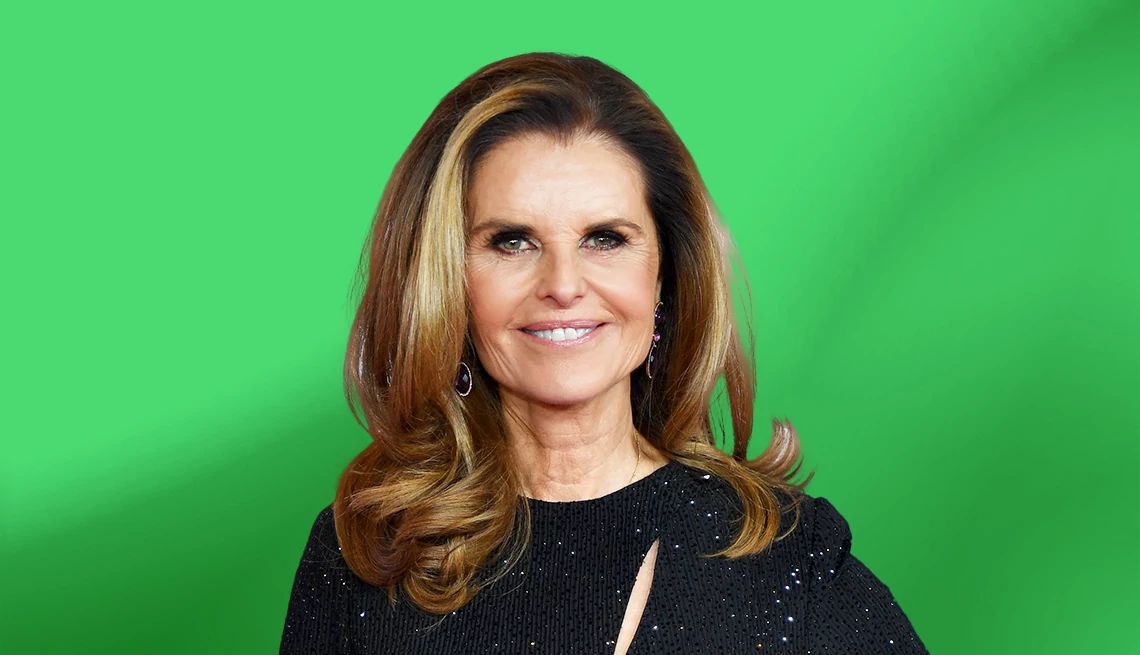AARP Hearing Center


Maria Shriver, 68, is on a mission. As founder of the Women’s Alzheimer’s Movement and a strategic adviser for the newly launched Cleveland Clinic Women’s Comprehensive Health and Research Center, she is a passionate advocate for expanded research that specifically focuses on women’s health, and hopes her efforts make a marked change for future generations. “My hope is that when my daughters and other people’s daughters are my age, that their experience at the doctor’s office is far more fact based than mine was,” Shriver says. AARP spoke to the journalist, author, former First Lady of California and mother of four children with ex-husband Arnold Schwarzenegger about her pursuit to change the conversation around women’s health care. She also shares her views on aging in the public spotlight, what she loves about being a grandmother and how she strives to be a supportive mother-in-law to her daughter Katherine’s husband, actor Chris Pratt.
This interview has been edited for length and clarity.
What changes are you trying to make in terms of women’s health care?
We need to have a broad, comprehensive conversation about what does women’s health actually mean. I’m always trying to have the conversation that it’s bigger than reproductive health. It’s bigger than breast cancer. It includes those things, but it’s far broader, and it’s far more comprehensive than the media writes it to be. I’m trying to broaden the conversation. I’m trying to make it more inclusive. I’m trying to talk about the inequities that are in it and how to write that ... into [clinical] trials — understanding that chronic diseases happen in different communities in different ways. People have different experiences with menopause or autoimmune disease or endometriosis or birth control, and [we need to make] room for that conversation.
What do you think women need to understand about midlife health issues?
Most women in midlife, millions of them, already have at least one chronic disease. One of the things I wish I had done is paid more attention in midlife, because whether it’s an autoimmune disease or whether it’s osteoporosis, all of these things begin in midlife or they get worse in midlife. So the best way to stay out of the doctor’s office is to prioritize your health at every decade of your life. Women in their 40s, 50s, their 60s are talking about different health issues than women in their 20s and 30s.
With increased research, ultimately, what would you like to see happen?
I’d like for women to be able to know more about their health journeys. I would like them to be able to get more facts when they go into the doctor’s office and be given facts and research to back it up, so that they’re not sitting there going: Should I get off the hormone? Should I go on the hormone? Should I take this drug? Should I not take that drug? Has it been tested on women? Has it not? What am I doing? How long should I do it? That they would have more information, that they would know the story of their health care better than they do now, because now there is no story for them to lean on.





























































You Might Also Like
Harry Hamlin Shares a Recipe and Secrets to His Longtime Marriage
Learn how actor’s new show came to be, try his linoleum chicken recipe and find out who his dream dinner guests are
James Taylor Looks Back on His Life: ‘Recovery Was Such a Gift’
Singer talks upcoming tour, his intriguing connection to Taylor Swift and shares words of wisdom
Whoopi Goldberg: ‘I Was Afraid If I Didn’t Write It Down, I’d Forget It All’
Award-winning actress and ‘The View’ cohost talks new memoir, honoring her loved ones and future plans
More Celebrity Interviews
Read exclusive Q&As with the biggest names in movies, music and television, best-selling authors and other high-profile personalities
More Members Only Access
Enjoy special content just for AARP members, including full-length films and books, AARP Smart Guides, celebrity Q&As, quizzes, tutorials and classes
Recommended for You